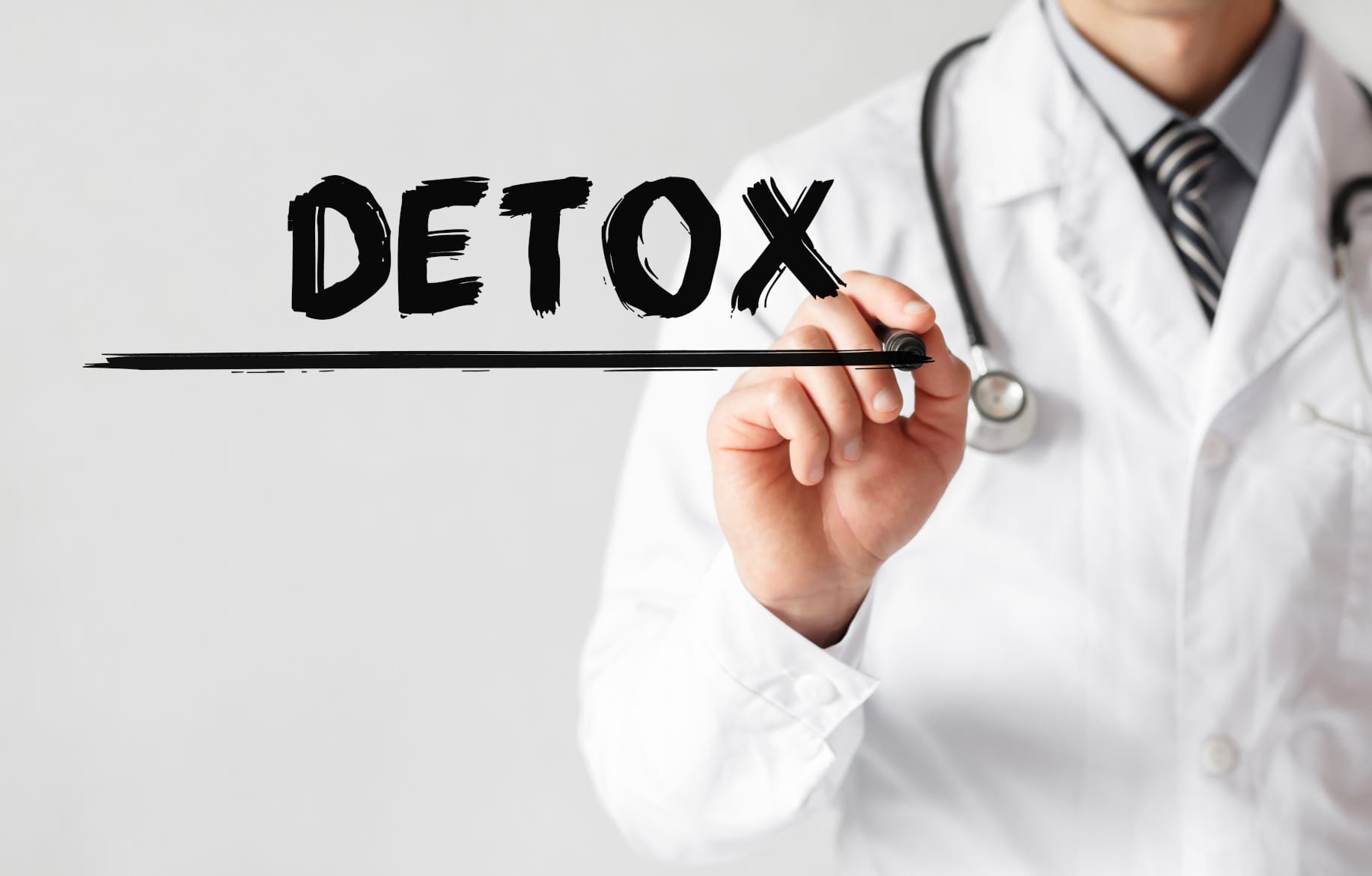Menu
Menu
Menu
close
Taking the step toward recovery from substance dependence is a major life decision—one that involves confronting your challenges head-on. At the heart of this journey is the detoxification process, commonly referred to as "detox," which is often the starting point for long-term sobriety.
What does it mean to detox? Medical detox is a supervised process that helps individuals safely withdraw from drugs or alcohol while being closely monitored by healthcare professionals. It’s not just about clearing substances from your body—it’s about doing so in a way that protects your physical and mental well-being.
As your body adjusts to functioning without addictive substances, withdrawal symptoms can appear. These symptoms can range from mild discomfort to serious medical concerns, depending on what you’ve been using and for how long. Medical detox helps manage these symptoms with the right mix of clinical support, medications when needed, and ongoing evaluation to make the process as safe and manageable as possible.
While detox is just the first step in recovery, it lays the groundwork for everything that comes next. A successful detox gives your body a clean slate and gives you the mental clarity needed to focus on long-term healing.
Medical detox can take place in a variety of settings, depending on the individual’s needs and the severity of their withdrawal symptoms. The most common types include:
Each approach offers a different level of structure, flexibility, and medical oversight. Choosing the right type of detox depends on your health, history of substance use, and personal situation.

Detox, the first on that list, is essential because it focuses on eliminating the substances from your system. It typically cannot be skipped. But detox is not a one-size-fits-all solution–you have likely heard stories of inpatient detox programs at other facilities. While those programs are known for their immersive environment and hands-on approach, they aren't always the only option—or the most fitting one—for everyone. Let’s dig deeper.
Detox is necessary when your body has become physically dependent on drugs or alcohol and you experience withdrawal symptoms when trying to stop. This can include things like shaking, nausea, anxiety, or trouble sleeping. If you've tried quitting on your own and found it difficult or unsafe, medical detox may be the right first step.
Inpatient detox is a well-known method for those beginning their recovery from substance use. In this type of program, clients stay in a controlled environment, such as a rehabilitation facility or a hospital, where they receive round-the-clock care from medical professionals.
This setup is particularly helpful for people facing severe withdrawal symptoms or for those with a history of relapsing in less controlled environments. The 24/7 medical supervision is designed to manage withdrawal symptoms effectively, reduce the risk of complications, and provide immediate intervention if necessary.
The process usually starts with a comprehensive assessment of the individual's medical history, substance use, and overall health. Based on this evaluation, a customized detox plan is developed. During inpatient detox, individuals are monitored closely, as withdrawal symptoms can be both physically and mentally intense. Medications may be administered to ease the discomfort of withdrawal and to address any co-occurring mental health conditions.
Inpatient detox is often seen as the "gold standard" for those with severe substance dependencies, multiple failed attempts at quitting, or coexisting medical conditions that complicate withdrawal. The benefit of constant medical supervision cannot be overstated, as it provides a sense of security for both patients and their loved ones. However, while this structured environment is beneficial for many, it’s not the only option out there—and it’s not always necessary.
In contrast to the traditional inpatient model, we offer an innovative solution that aligns more closely with the needs of individuals seeking flexibility and autonomy in their recovery journey. Our remote outpatient detox program is best for individuals with mild to moderate substance use disorders who have a stable home environment and reliable support.
Outpatient detox is especially appealing to those who have commitments they cannot easily leave behind, such as work or family responsibilities. The appeal of a remote outpatient detox lies in its flexibility. It allows you to detox without disrupting your daily routine quite as much, maintaining a level of normalcy that can be comforting during a challenging time. It also fosters a sense of privacy, as you can manage your detox journey discreetly within your own home.
You’ll still receive a personalized detox plan tailored to your specific situation, much like you would in an inpatient setting. But instead of staying in a facility, you are monitored remotely through a combination of telehealth consultations, phone calls, and continuous support from our medical team.

As you consider your detox options, the flexibility and personalized nature of outpatient detox tends to become more and more clear. Unlike the rigid structure of an inpatient facility (where you essentially live at the rehab until you’re cleared to leave), outpatient detox offers a way to incorporate treatment into your life rather than pausing everything for treatment. The key is in creating a balance between medical oversight and personal freedom, a balance that we prioritize in our approach to outpatient care.
What does it mean to detox at home? Outpatient detox requires a commitment to regular check-ins with medical professionals, whether through in-person visits or telehealth. During these check-ins, our team closely monitors your progress, adjusts your detox plan as needed, and provides support for managing any emerging withdrawal symptoms. This setup offers a level of accountability that is essential for a successful detox, yet it doesn't demand that you put your life on hold. This combination of professional care and personal autonomy is why many find exploring outpatient detox to be a compelling choice.
However, outpatient detox is not a standalone process. To ensure safety and effectiveness, you’ll need to consult with our experts first. Our team is fully equipped to assess your situation and guide you toward the detox method that best suits your needs. The decision should always be made based on a comprehensive evaluation of your health, substance use, and personal circumstances.
Deciding between an inpatient or outpatient detox program is a significant decision that involves understanding your own unique needs. To find out if an outpatient detox is right for you, please contact us!
For those looking to understand detox meaning, a medical detox is a supervised process that helps individuals safely withdraw from drugs or alcohol under the care of healthcare professionals. It often includes medications and monitoring to manage withdrawal symptoms and reduce health risks. This supportive environment is designed to keep individuals stable and comfortable as they begin their recovery journey.
Most detox programs last between 3 and 10 days. The timeline depends on the substance used, how long it’s been used, and your overall health. While symptoms often peak in the first few days, full recovery from withdrawal may take a bit longer, and follow-up care is usually recommended.
Medical detox involves supervision from healthcare professionals who can help manage withdrawal symptoms and keep you safe. Quitting cold turkey means stopping on your own, which can be risky, depending on the substance.
No, detox is just the first step. It helps your body clear substances, but long-term treatment addresses the emotional and behavioral parts of recovery.
Most people can eat and sleep during detox, though appetite and rest may be affected by withdrawal symptoms. Medical support can help make this process more manageable.
In many cases, yes. Medication may be used to reduce withdrawal symptoms, prevent complications, or support mental health. The use of medication depends on your needs and the substances involved.
Yes, some people go through detox more than once, especially if they experience a relapse. Each time, medical staff can help reassess your needs and adjust the plan for safety and success.
Yes, your participation in a detox program is private and protected by law. Medical staff follow strict confidentiality guidelines to respect your privacy.